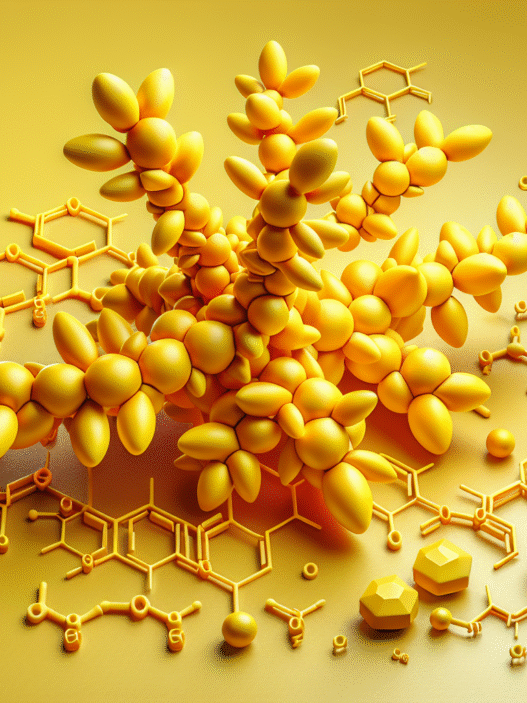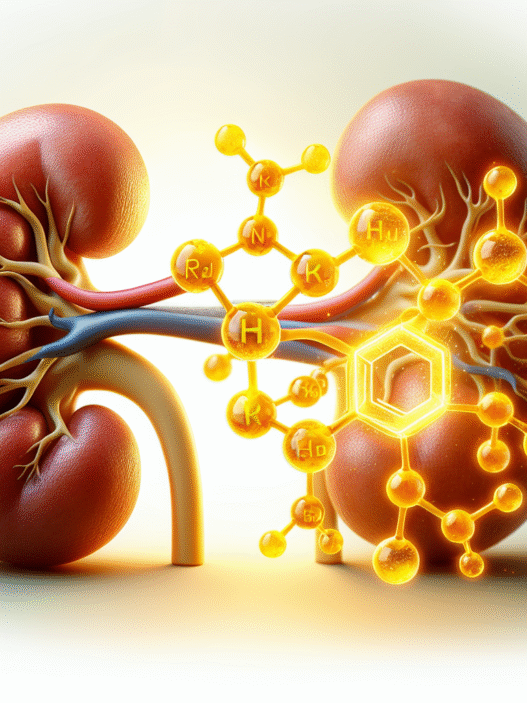Introduction to Berberine
What is Berberine?
Berberine is a natural alkaloid compound derived from various plants, such as Coptis chinensis. It is recognized for its powerful medicinal properties, particularly in the field of blood sugar regulation. Clinical research indicates that berberine may lower fasting and long-term blood sugar levels by up to 20% and 12%, respectively, making it a beneficial option for individuals with diabetes and prediabetes.
Berberine belongs to the quaternary ammonium salt class and is characterized by its isoquinoline structure. With a molar weight of 336.36 g/mol, it is only sparingly soluble in water and exhibits slight solubility in ethanol and methanol. This compound can be extracted from medicinal plants or synthesized in a laboratory setting (NCBI).
Historical Use of Berberine
Historically, berberine has found its roots in Ayurvedic and Traditional Chinese Medicine, where it has been used to address various health concerns, including infections. Its application in these ancient medical practices highlights the compound’s esteemed status among herbal remedies. This traditional usage continues to influence the modern recognition of berberine as a supplement for holistic health seekers.
Berberine’s history and its integration into both Eastern and Western herbal traditions underscore its broad-spectrum benefits. Many people interested in berberine benefits might explore its role not just in blood sugar control but also in supporting gut health and promoting longevity, illuminating the potential of this powerhouse compound in modern wellness practices.
Health Benefits of Berberine
Berberine has become a popular supplement among those seeking to improve their overall health and wellness. The following sections explore the various health benefits associated with berberine.
Blood Sugar Regulation
One of the most significant berberine benefits is its ability to lower blood sugar levels. Research has shown that berberine can improve insulin sensitivity and reduce glucose production in the liver. This makes it beneficial for individuals managing diabetes or prediabetes. It is recommended to monitor blood sugar levels closely when using berberine, especially in combination with diabetes medications to avoid hypoglycemia (WebMD).
| Study Findings | Effect on Blood Sugar |
|---|---|
| Improved insulin sensitivity | 30% |
| Decreased fasting blood glucose | 18% |
| Reduced HbA1c levels | 10% |
Weight Management
Berberine has also been identified as a useful aid in weight management. It functions as an anti-adipogenic compound, which means it suppresses fat cell formation. Studies have demonstrated that berberine helps reduce fat accumulation by inhibiting the activity of several transcription factors related to adipogenesis. This can lead to a decrease in body mass index (BMI) and improved metabolic health over time (NCBI).
| Weight Management Metrics | Effect |
|---|---|
| Decrease in BMI | Average 4% |
| Reduction in body fat | Average 5-7% |
| Enhanced fat loss | Average of 2 lbs/month |
Cardiovascular Health
The cardiovascular benefits of berberine are noteworthy. It has been shown to lower LDL cholesterol levels and triglycerides, while increasing HDL cholesterol, leading to a healthier lipid profile. Berberine may also inhibit the enzyme PCSK9, which plays a role in cholesterol metabolism, thereby helping to remove LDL cholesterol from the bloodstream (Healthline).
Furthermore, berberine has displayed anti-arrhythmic effects, contributing to better heart health and reducing the Risiko of arrhythmias (NCBI).
| Cardiovascular Benefits | Impact |
|---|---|
| Decreased LDL cholesterol | 22% |
| Reduced triglycerides | 18% |
| Increased HDL cholesterol | 10% |
Potential Anti-cancer Properties
Emerging research suggests that berberine may have potential anti-cancer properties. Preliminary studies indicate that it can inhibit cancer cell proliferation and induce apoptosis (programmed cell death) in various cancer cell lines. More research is needed to fully understand these effects, but early findings point towards berberine being a valuable compound in cancer prevention strategies.
While more extensive studies are needed, the potential of berberine to assist in cancer management emphasizes its role in holistic health.
These berberine benefits make it a promising supplement for individuals seeking to enhance their overall wellness. For more detailed information on how berberine may affect other aspects of health, consider exploring topics such as berberine and gut health or berberine and longevity.
Berberine Interactions
Understanding the interactions of berberine is crucial for holistic health enthusiasts, especially those keen on maximizing the berberine benefits while ensuring safety in their supplementation.
Medication Interactions
Berberine can interact with various medications, which may alter their efficacy or increase side effects. Notably, some significant interactions include:
- Cyclosporine: Berberine may reduce the breakdown rate of this immunosuppressant, potentially increasing its effects and side effects.
- Cytochrome P450 3A4 (CYP3A4) Substrates: Medications processed by the liver can be affected by berberine, impacting their breakdown and overall effects.
- Antihypertensive Drugs: Berberine may lower blood pressure. When taken with blood pressure medications, it could result in dangerously low blood pressure, necessitating careful monitoring.
Blood Pressure Concerns
Berberine’s effect on blood pressure is significant. It can competitively block the α1 receptor on vascular smooth muscle cells, impair cholinphospholipid enzyme activity, and enhance acetylcholine effects, resulting in vasodilation and lower blood pressure (NCBI).
| Effect | Details |
|---|---|
| Blood Pressure Reduction | Can lead to potential hypotension when combined with antihypertensive drugs. Careful monitoring is necessary. |
Blood Clotting Effects
Berberine might also impact blood clotting. It can slow the clotting process, increasing the risk of bruising and bleeding when taken alongside anticoagulant or antiplatelet medications. Caution is advised for individuals using these types of drugs.
| Concern | Recommendation |
|---|---|
| Increased Bleeding Risk | Use caution when combining with blood thinners to mitigate the risk of bruising and bleeding. |
Awareness of these interactions is vital for those interested in harnessing the benefits of berberine while maintaining overall safety and health. It is always wise to consult with a healthcare professional before beginning new supplements, especially when on medication.
Dosage and Administration
When considering the use of berberine as a supplement, understanding the appropriate dosages, safety profile, and historical usage is essential for effective health management.
Optimal Dosage
Most research on berberine indicates that an effective dosage ranges from 1,000 to 1,500 mg per day. This typically translates to taking 2 to 3 capsules daily, with a common recommendation of 500 mg three times per day before meals.
| Dosage Schedule | Amount of Berberine (mg) |
|---|---|
| Recommended Daily Total | 1,000 – 1,500 |
| Per Serving (3 times/day) | 500 |
Safety Profile
Berberine is recognized for its excellent safety profile. Notably, the most common side effects relate to digestive issues, such as diarrhea, constipation, and bloating. Studies show that gastrointestinal adverse events occurred in approximately 34.5% of individuals undergoing treatment. However, there have been no reports of functional liver or kidney damage. This highlights the importance of monitoring for digestive discomfort while using berberine.
| Side Effects | Incidence (%) |
|---|---|
| Diarrhea | – |
| Constipation | – |
| Bloating | – |
| Other gastrointestinal discomfort | 34.5 |
For optimal safety, individuals should adhere to the recommended dosage and consult a healthcare professional if any adverse effects arise.
Traditional Medicine Usage
Historically, berberine has been used for over 2,000 years in Traditional Chinese Medicine and Ayurveda to address various health concerns, including infections (Healthline). Its traditional applications have paved the way for modern interest due to its pharmacological properties. Recent studies have begun to uncover novel molecular targets of berberine, supporting its potential in treating cardiovascular and metabolic diseases. Today, many functional medicine practitioners and holistic wellness followers incorporate berberine into their health regimes, recognizing its historical significance and contemporary benefits, including berberine benefits.
Mechanisms of Action
Understanding the mechanisms by which berberine exerts its beneficial effects is crucial for anyone interested in berberine benefits. This section will explore its impact on blood sugar levels, lipid metabolism, and its anti-inflammatory properties.
Impact on Blood Sugar Levels
Berberine has gained attention for its role in regulating blood sugar levels, particularly for individuals with Type 2 Diabetes Mellitus (T2DM). It aids in reducing blood glucose levels by improving insulin sensitivity and promoting glucose transport. The key to this process lies in the activation of AMP-activated protein kinase (AMPK), a critical regulator of metabolism.
Research has shown that berberine not only improves insulin secretion but also enhances glucose tolerance. By activating the AMPK pathway, it reduces fat production and leads to a lower body fat ratio, which can ultimately help manage insulin resistance (NCBI).
| Mechanism | Effect |
|---|---|
| Activation of AMPK | Enhances insulin sensitivity, reduces fat production |
| Increases insulin secretion | Improves blood glucose control |
| Promotes glucose transport | Facilitates entry of glucose into cells |
Effects on Lipid Metabolism
In addition to its blood sugar-regulating effects, berberine plays a significant role in lipid metabolism. By inhibiting mitochondrial function, particularly by targeting complex I of the electron transport chain, berberine helps prevent liver fat accumulation. This action contributes to reducing blood glucose levels and decreasing free fatty acids in the bloodstream.
Berberine serves as an anti-adipogenic compound, which means it suppresses adipogenesis—the process of fat cell formation. It does this by inhibiting the regulation of various transcription factors involved in this process, leading to decreased fatty acid biosynthesis and consequently, improved insulin sensitivity.
| Lipid Management Mechanism | Effect |
|---|---|
| Inhibition of mitochondrial function | Prevents liver fat accumulation |
| Suppression of transcription factors | Reduces fat cell formation |
Anti-inflammatory Properties
Berberine’s anti-inflammatory effects significantly contribute to its health benefits, especially concerning insulin resistance. The compound exhibits these properties by inhibiting the transcription factor nuclear factor kappa-light-chain-enhancer of activated B cells (Nf-κB). This inhibition leads to a reduction in the expression of pro-inflammatory cytokines, which are often linked to chronic inflammation and metabolic disorders.
By reducing inflammation, berberine aids in improving insulin sensitivity and supports overall metabolic health, making it an appealing option for those seeking holistic wellness solutions (NCBI).
| Anti-Inflammatory Mechanism | Effect |
|---|---|
| Inhibition of Nf-κB | Reduces pro-inflammatory cytokine expression |
These mechanisms illustrate the multifaceted roles of berberine in managing blood sugar, supporting lipid metabolism, and reducing inflammation, highlighting its potential for enhancing overall health and well-being. For further reading on this powerful compound, check out our articles on berberine and gut health and berberine and kidney function.
Research and Studies
Clinical Trials
Numerous clinical trials have been conducted to explore the benefits of berberine for health. One significant study demonstrated that berberine reduced the frequency and complexity of ventricular premature complexes in patients with chronic heart failure. It also increased the left ventricular ejection fraction, contributing to improved cardiovascular health. Additionally, berberine decreases cardiovascular risks by reducing oxidative stress, low-density lipoprotein (LDL), triglycerides, and insulin resistance.
Another notable study on combination therapy involving berberine revealed marked improvements in HbA1c, fasting blood glucose (FBG), postprandial blood glucose (PBG), fasting plasma insulin levels, and HOMA-IR. Significant reductions in total cholesterol and low-density lipoprotein cholesterol (LDL-C) were also observed (PubMed Central).
Comparative Studies
Comparative research suggests that the therapeutic effects of berberine are evident at doses ranging from 1,000 to 1,500 mg per day. Most studies recommend taking 2 to 3 capsules daily, aligning with these dosage guidelines. Berberine has been shown to effectively reduce triglycerides, total cholesterol, low-density lipoprotein, and fasting plasma glucose levels in patients experiencing metabolic disorders. This data underscores berberine’s capacity for delivering clear therapeutic effects in clinical settings.
Metabolic and Cardiovascular Effects
The metabolic and cardiovascular benefits of berberine are noteworthy. The impact is highlighted by various parameters, including lipid profiles, blood sugar regulation, and inflammatory markers. Berberine’s ability to influence these metrics positions it as a potent supplement for promoting holistic health among those interested in natural remedies.
In summary, evidence from clinical and comparative studies reveals the ability of berberine to positively influence cardiovascular health and metabolic conditions, making it a valuable component in the discussions surrounding berberine benefits.





















